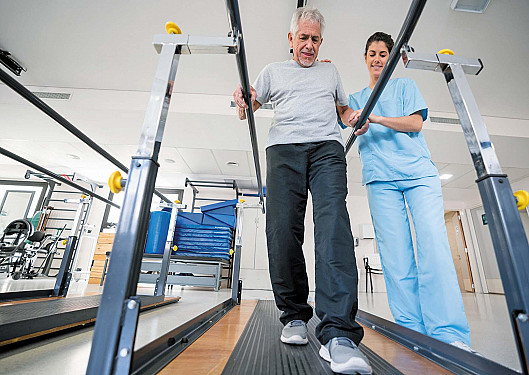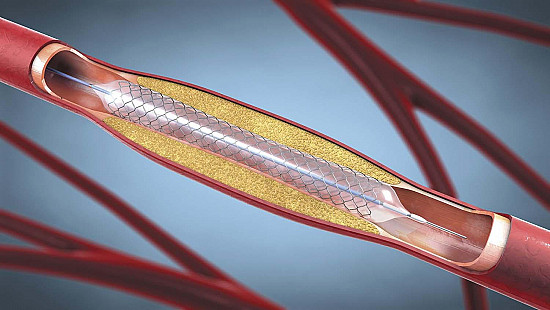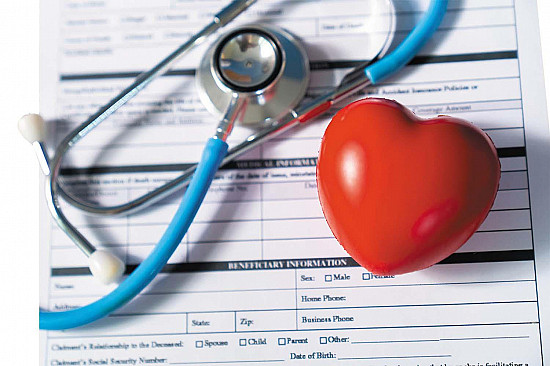A promising new treatment for high triglycerides

When you think about fat circulating in the bloodstream, you might immediately think of cholesterol. But there's another type of fat you shouldn't ignore: triglycerides. As with cholesterol, high triglycerides can also increase the risk of having a heart attack. Existing drugs for lowering triglycerides aren't that good at reducing heart attack risk. That's why a report on a new way to lower triglycerides, published in today's New England Journal of Medicine, is generating some excitement among cardiologists.
What are triglycerides?
Triglycerides are a type of fat that circulates in the bloodstream. After you eat a snack or meal, your body breaks down the fats in the food, packages them with protein and cholesterol, and dumps them into the bloodstream. After an especially fatty meal, triglycerides can be so abundant that they give the blood a milky tint. Within a few hours after a meal, triglycerides have mostly cleared out of the bloodstream.
The American Heart Association sets out four main categories of triglyceride levels:
- healthy: below 100 milligrams per deciliter of blood (mg/dL)
- borderline high: 150 to 199 mg/dL
- high: 200 to 499 mg/dL
- very high: 500 mg/dL and above.
"High" or "very high" levels of triglycerides are associated with an increased risk of heart disease. When the triglyceride level nears 1,000 mg/dL, individuals can develop pancreatitis, a serious inflammation of the pancreas, in addition to heart disease.
High triglyceride levels also may be associated with obesity, type 2 diabetes, and a cluster of heart disease risk factors known as the metabolic syndrome. Together, these features put a person at especially high risk of heart disease.
Triglyceride-lowering drugs have been available for some time. The main drugs that lower triglycerides are niacin and a class of drugs called fibrates. But the effects of these triglyceride-lowering drugs are somewhat controversial. For example, two large clinical trials found no benefit from niacin therapy in preventing heart disease events, even though niacin both lowered triglyceride levels and raised the level of heart-healthy HDL ("good") cholesterol. Not only did niacin not lower the risk of heart disease, it also caused troublesome side effects, such as flushing of the skin and an increased risk of infections. So, there is reason to be wary about taking niacin to lower triglyceride levels.
A large clinical trial of fenofibrate (Tricor, other names), one of the fibrate drugs, showed that it also reduced triglyceride levels, but didn't lower the risk of heart disease. However, fenofibrate did seem to help a subgroup of people in the trial who had particularly high triglyceride levels and low HDL levels.
Possible new treatment for high triglycerides
In the report in The New England Journal of Medicine, an international team of researchers describe a new therapy for high triglycerides. It involves a weekly injection of "antisense oligonucleotides" (ASOs), pieces of DNA that short-circuit the liver's production of triglycerides. The new report shows that ASOs can reduce triglyceride levels by as much as 70%.
Keep in mind that this was a phase 2 trial, which is designed to test whether a drug does what it is supposed to do (in this case, lower a person's triglyceride levels). Larger, longer-term studies will be needed to see whether ASOs actually reduce the risk of heart disease, and what sorts of side effects they cause.
Many experimental medications that sparkle in early testing never become FDA-approved drugs. We won't know for several years whether ASOs will become available for individuals with high triglycerides.
Lowering triglycerides without medication
Unless your triglycerides are extremely high, lifestyle changes are the best place to start. These simple steps can significantly lower triglyceride levels.
- Beware of bad fats. Cutting back on saturated fat (in red meat and full-fat dairy foods) and trans fats (in restaurant fried foods and commercially prepared baked goods) can lower triglycerides.
- Go for good carbs. Easily digested carbohydrates (such as white bread, white rice, cornflakes, and sugary sodas) give triglycerides a definite boost. Eating whole grains and cutting back on soda can help control triglycerides.
- Check your alcohol use. In some people, alcohol dramatically boosts triglycerides. The only way to know if this is true for you is to avoid alcohol for a few weeks and have your triglycerides tested again.
- Go fish. Omega-3 fats in salmon, tuna, sardines, and other fatty fish can lower triglycerides. Having fish twice a week is fine.
- Aim for a healthy weight. If you are overweight, losing just 5% to 10% of your weight can help drive down triglycerides.
- Get moving. Exercise lowers triglycerides and boosts heart-healthy HDL cholesterol.
- Stop smoking. It isn't good for triglyceride levels — or for anything else.
About the Author

Gregory Curfman, MD, Assistant Professor of Medicine, Former Editor-in-Chief, Harvard Health Publishing
Disclaimer:
As a service to our readers, Harvard Health Publishing provides access to our library of archived content. Please note the date of last review or update on all articles.
No content on this site, regardless of date, should ever be used as a substitute for direct medical advice from your doctor or other qualified clinician.














.jpg)

